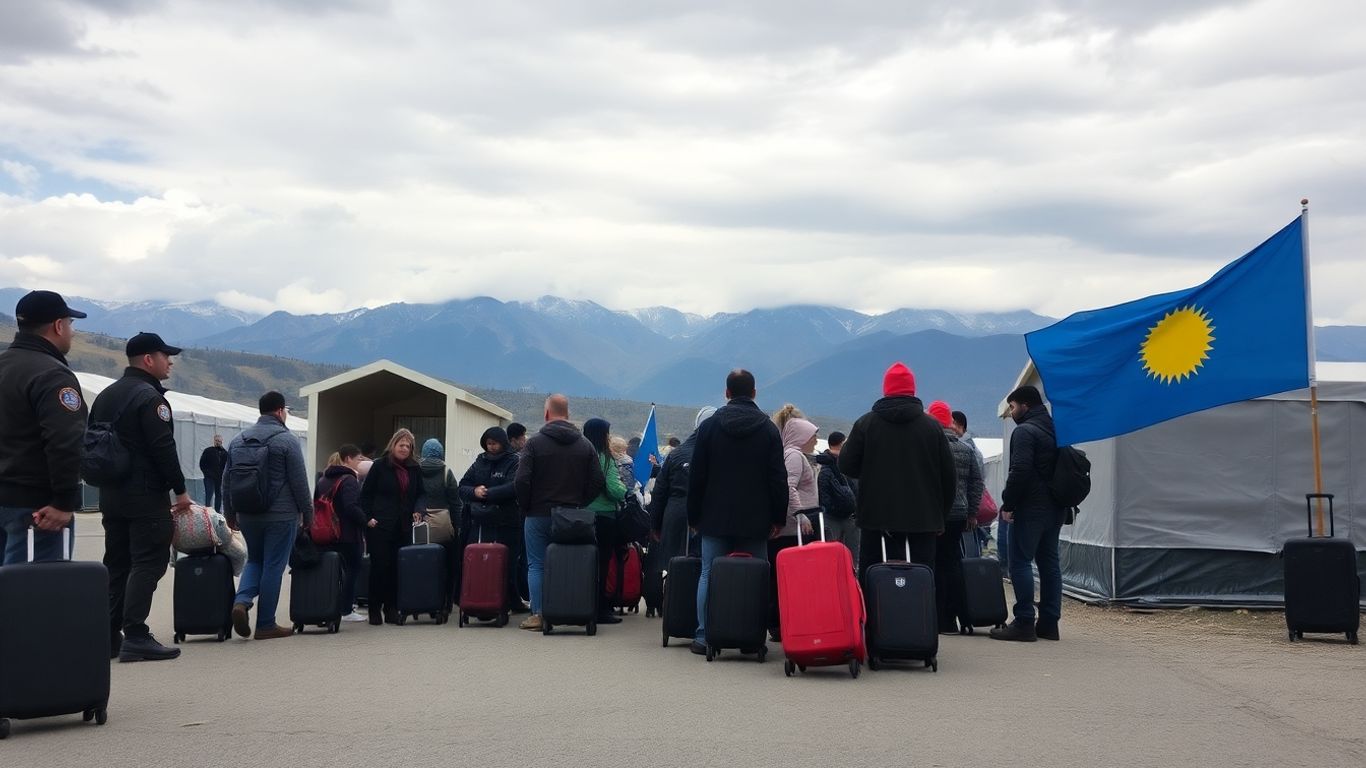Kosovo has agreed to a US request to temporarily accommodate up to 50 migrants per year who the US is deporting but whose home countries won’t accept them. The arrangement strengthens Kosovo’s ties with Western partners and aligns with a broader US effort to manage immigration and deportations globally.
Key Takeaways
- Kosovo will host up to 50 third-country migrants deported from the US annually.
- The stay is temporary until safe returns to their home countries can be arranged.
- Migrants will be selected based on criteria relating to public order and rule of law.
- Kosovo officials emphasize the country’s cooperation with the US and highlight shared values.
US Push for Global Migrant Agreements Intensifies
This temporary hosting agreement reflects a sweeping American effort to find willing nations to receive migrants who are not their own nationals. The Trump administration has prioritized record-level deportations, seeking deals with several continents’ governments. These arrangements often involve migrants whose return to their own countries is blocked due to strained diplomatic relations or safety concerns.
Recent years have seen similar US agreements with Central American nations and controversial attempts to deport people to other unstable countries. US officials stress that working with responsive countries like Kosovo is vital for carrying out deportation policies.
Details of the Kosovo Arrangement
Kosovo’s government will manage the accommodation and selection process. Authorities have the discretion to choose individuals from a pool proposed by US officials, provided that certain legal and public order standards are met. The Interior Ministry will oversee the arrangements and eventual repatriation of migrants to their home countries.
The number—up to 50 people per year—remains small but is symbolically significant. Kosovo’s officials say the deal underlines the country’s commitment to international cooperation, especially with the US, which has long played a key role in supporting Kosovo following its independence from Serbia in 2008.
Broader Context and Reactions
Kosovo has previously accepted Afghan evacuees for extra security vetting following the 2021 US military withdrawal from Afghanistan. The country has also struck deals with Denmark and is considering similar arrangements with the UK, positioning itself as a logistical partner in Western migration management.
However, rights organizations have cautioned Balkan countries about potential risks for both migrants and host communities. Kosovo’s leaders frame these deals as opportunities to showcase alignment with Euro-Atlantic values and to foster future political and economic support.
Future Outlook
While the direct impact of this agreement is limited in numbers, the move could signal a pattern, as Western governments look for flexible partners on immigration. For Kosovo, enhancing its cooperation with key allies could also play a strategic role in its ambitions for greater international recognition and integration into broader European institutions.
Sources
- Kosovo agrees to accept U.S. deportations of migrants from other countries, CBS News.
- Kosovo Approves Measure To ‘Temporarily’ Host Migrants Deported From The US, Radio Free Europe/Radio Liberty.
- Kosovo accepts US request to host third-party deportees, Reuters.






